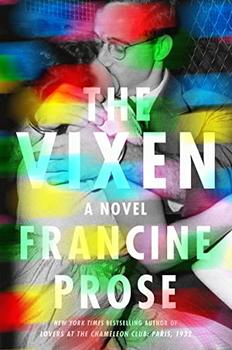Summary | Excerpt | Reading Guide | Reviews | Beyond the book | Read-Alikes | Genres & Themes | Author Bio

The execution of American citizens, Julius and Ethel Rosenberg during America's "Red Scare", is the backdrop for The Hours Count. While the Rosenbergs are important characters in the book, the focus is more on the experiences of their fictional neighbor Millie Stein, whose life isn't a happy one.
Millie is the young mother of David, a child who seems to be locked away in his own mind. Her husband, Ed, a Jewish-Russian immigrant, is too busy talking politics with his co-workers to pay Millie much attention, and he barely tolerates David. Due to her son's differences, Millie feels cut off from the neighborhood mothers, but she slowly makes friends with Ethel Rosenberg. Like Millie, Ethel has a son who isn't quite normal (Cantor uses creative license when imagining him), a commonality over which the women bond.
When Millie meets Jake Gold, a psychotherapist, at one of the Rosenbergs' parties, he offers to work with David for free. Reluctant at first, Millie agrees on one condition: Ed cannot know. It becomes one of many secrets kept in the Stein household.
As Millie's relationship with Jake evolves, her life with Ed deteriorates. She suspects Ed may be too involved with his politics, and the fear of who in America can be trusted and who cannot leads Ethel to advise: "Trust no one but yourself." It is advice Ethel should also heed.
Jillian Cantor fills The Hours Count with memorable characters. Millie is the most likeable, even if she does start off somewhat naïve. As she grows, Millie realizes people aren't always what they seem, and she learns what's truly important in life: love and family. She reflects at one point: "What surprises me most is the way the days sometimes feel so long and yet the years so short. It's all the hours between that count. All the endless weary and wonderful hours…"
A few of the characters do, however, need more fleshing out. Even though the Rosenbergs' case serves as the focal point of the work, they are shadowy at best. Because of her connection to Millie, Ethel's character has some depth, and her love for her children is palpable. Julius, though, needs more description. He is depicted as fatherly, but he seems to do little more than play catch with his son and go to work. In contrast, Cantor's exploration of Ed Stein's anger is thorough, which is illustrated when he explains to Millie his frustrations with his new country: "I thought for so long that America was the land of opportunity. That you could be anything you wanted here…But the truth is, you can't. You can only be what they want you to be." Yet, Ed's character is one-dimensional; he has little on his mind except politics and having a child who is "normal."
Cantor pays great attention to the historical details of the time period. She uses the telephone operators' strike of 1947 to advance the plot. She also employs a 1947 small pox outbreak to allow Millie and Ethel's friendship to deepen. In the "Author's Note," Cantor explains other historical references she incorporates. Because the work hinges on important dates, her choice to expound the facts, as well as justify the changes, makes sense.
Any time an author delves into historical fiction, he or she must make the work plausible, which Cantor does. The Hours Count invites readers into a world that astutely blends fact with fiction. Told from Millie's perspective, the novel presents an easy imagining of what Ethel and Julius Rosenberg may have been like: loving parents who were in over their heads.
![]() This review was originally published in The BookBrowse Review in November 2015, and has been updated for the
September 2016 edition.
Click here to go to this issue.
This review was originally published in The BookBrowse Review in November 2015, and has been updated for the
September 2016 edition.
Click here to go to this issue.

If you liked The Hours Count, try these:

by Kate Quinn
Published 2025
The New York Times bestselling author of The Diamond Eye and The Rose Code returns with a haunting and powerful story of female friendships and secrets in a Washington, DC, boardinghouse during the McCarthy era.

by Francine Prose
Published 2022
Critically acclaimed, bestselling author Francine Prose returns with a dazzling new novel set in the glamorous world of 1950s New York publishing, the story of a young man tasked with editing a steamy bodice-ripper based on the recent trial and execution of Ethel and Julius Rosenberg - an assignment that will reveal the true cost of entering that ...
Education is the period during which you are being instructed by somebody you do not know, about something you do ...
Click Here to find out who said this, as well as discovering other famous literary quotes!
Your guide toexceptional books
BookBrowse seeks out and recommends the best in contemporary fiction and nonfiction—books that not only engage and entertain but also deepen our understanding of ourselves and the world around us.